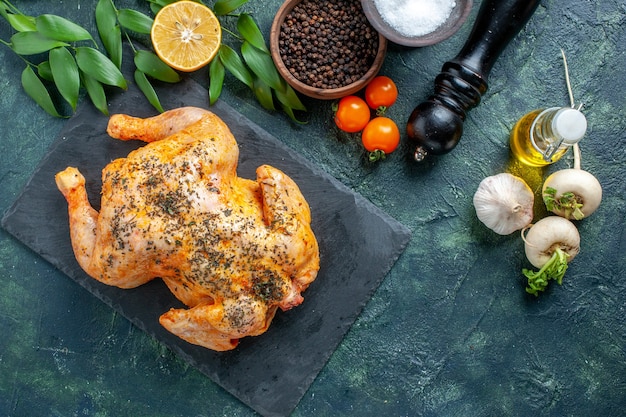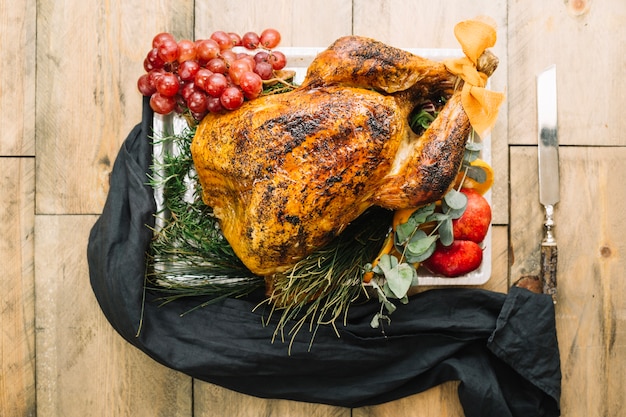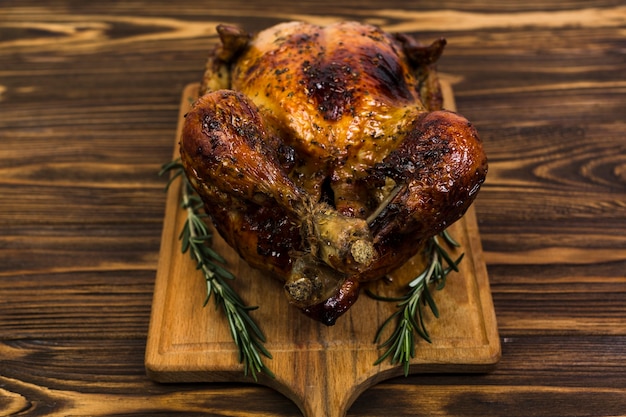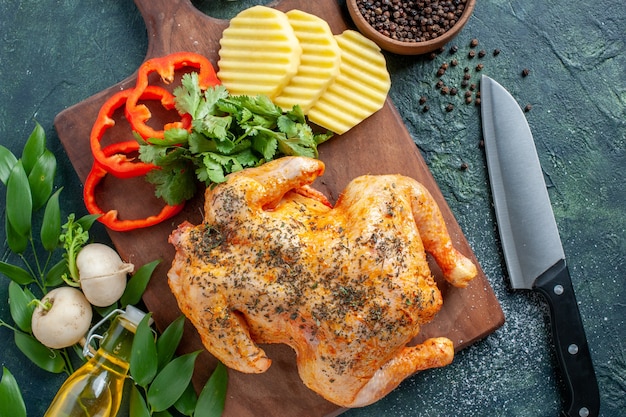Can Grilled Chicken Cause Cancer?
Grilled chicken is a popular choice for many people looking to maintain a healthy diet. It is lean, high in protein, and often considered a healthier alternative to red meat. However, there have been concerns raised about whether consuming grilled chicken regularly can increase the risk of cancer. This article explores the topic and provides an evidence-based analysis of the potential health effects of grilled chicken.
Understanding the Grilling Process
Grilling chicken involves cooking it over an open flame or high heat, which leads to the formation of charred or blackened parts on the meat’s surface. These charred areas are a result of the Maillard reaction, a chemical reaction that occurs between amino acids and sugars when exposed to high heat. While this process gives grilled chicken its distinct flavor and texture, it also produces compounds called heterocyclic amines (HCAs) and polycyclic aromatic hydrocarbons (PAHs).
HCAs and PAHs are formed when meat, including chicken, is cooked at high temperatures, especially when it is charred or well-done. These compounds have been shown to be potentially carcinogenic in animal studies. When consumed in large quantities or over a prolonged period, they may pose health risks. However, it is crucial to consider the dose, frequency, and overall dietary habits when evaluating the impact of grilled chicken on cancer risk.
The Association between HCAs and Cancer
Several studies have investigated the association between HCAs and different types of cancer in humans. While some studies have suggested a possible link between HCAs and certain cancers, such as colorectal, pancreatic, and prostate cancer, the evidence remains inconclusive and inconsistent. Factors such as individual genetic susceptibility, cooking methods, and overall dietary patterns can influence the association between HCAs and cancer risk.
“It is important to note that the majority of the evidence linking HCAs to cancer comes from animal studies or laboratory experiments,” says Dr. Emma Jones, a nutrition expert.
Human studies are often limited by factors such as recall bias and confounding variables. Furthermore, most studies have examined high levels of HCA exposure that are unlikely to occur in real-world dietary situations. It is essential to consider these limitations when interpreting the available evidence.
Reducing the Formation of HCAs
While the formation of HCAs is an inherent consequence of high-temperature cooking, there are ways to minimize their levels when grilling chicken:
- Marination: Marinating chicken in olive oil, citrus juice, or vinegar before grilling has been shown to reduce HCA formation significantly. The antioxidants and other compounds present in these marinades act as protective barriers against the formation of harmful compounds.
- Precooking: Partially precooking chicken using alternative cooking methods, such as boiling or microwaving, before grilling can help reduce the amount of time required on the grill. This can result in lower HCA formation.
- Grill temperature control: Using lower heat settings and avoiding flare-ups can reduce charring, thereby minimizing the formation of HCAs.
- Cutting off charred parts: Trimming away the charred or blackened portions of grilled chicken can help reduce the intake of HCAs.
Healthy Grilling Practices
Despite the potential concerns associated with HCAs, grilled chicken can still be a healthy and flavorful addition to a balanced diet. By adopting certain cooking practices and considering overall dietary patterns, you can enjoy grilled chicken while minimizing any potential risks:
- Variety: Incorporate a diverse range of foods in your diet, including fruits, vegetables, and whole grains. These provide essential nutrients, fiber, and antioxidants that can help mitigate the effects of potential carcinogens.
- Balanced plate: Ensure your meal includes a mix of protein, carbohydrates, healthy fats, and a variety of colorful vegetables to maintain a well-rounded diet.
- Cooking methods: Explore alternative cooking methods like baking, steaming, or poaching as healthier options that do not involve high heat and charring.
- Portion control: Moderation is key. Enjoy grilled chicken as part of a balanced meal, making sure to control portion sizes and avoid excessive consumption.
Conclusion
The association between grilled chicken and cancer risk remains complex and inconclusive. While the formation of HCAs during grilling may be a concern, the available evidence does not definitively establish a direct link between consuming grilled chicken and an increased risk of cancer in humans. By following healthy grilling practices and maintaining a varied and balanced diet, you can continue to enjoy grilled chicken as part of a nutritious meal without significant concerns about its potential impact on cancer risk.



